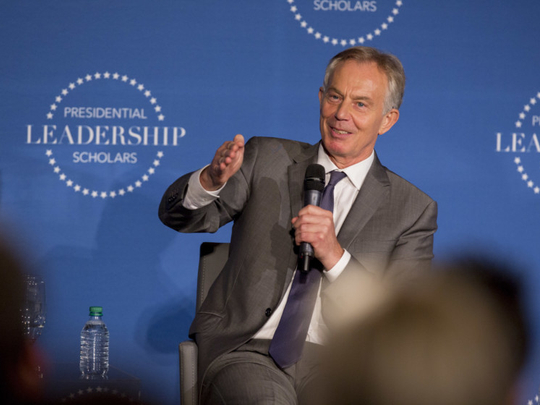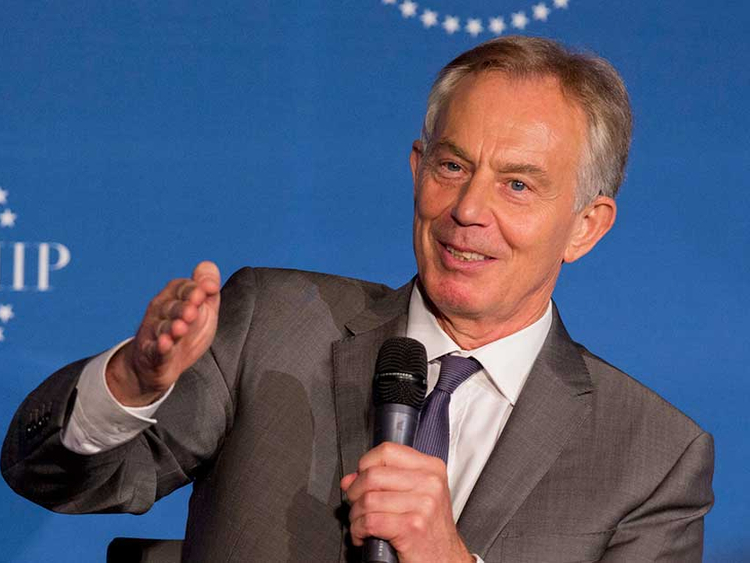
The Chilcot report may have not crucified the main British culprit, but it was tantalisingly edging towards that conclusion. But not quite, however. There are considerably huge number of people who would like to see Britain’s former prime minister, Tony Blair, dispatched to The Hague’s International Court of Justice, to be tried for his role in the Iraq War of 2003. Based on the findings of the Iraq inquiry, or the Chilcot report, this is still a distant dream.
The most likely conclusion of this tragedy would eventually be a footnote in history books as the Suez invasion of 1956 had ended up. Though the circumstances between then and 2003 are somewhat different, the then British Conservative prime minister, Anthony Eden, had secretly conspired with his French and Israeli counterparts to invade Egypt in retaliation to its leader Jamal Abdul Nasser’s decision to nationalise the Suez Canal. Eden kept the decision of the tripartite invasion secret from parliament, more than half of his cabinet as well as the then US president Dwight Eisenhower and his secretary of state John Foster Dallas. Anthony Nutting, unlike his colleague at the time, Edward Heath (who became prime minister in the 1970s), resigned his post as minister of state at the Foreign Office in protest.
He refrained from making a statement in parliament to explain the reasons behind his resignation, limiting himself to saying it was “a matter of principle”. But it took ten years, due to constitutional constraints, to finally reveal the details of the ‘tripartite conspiracy’ and biggest lie of the previous century in his book No End of a Lesson.
However, in the case of Blair, the Chilcot report has not provided us with a clear-cut accusation, sufficient enough to fully criminalise Blair for his role in taking Britain into war in Iraq, joining the then US president George W. Bush in what was casually named as ‘Alliance of the Willing’. It is very likely that the only ones to have read the colossal 2.6 million-word report in full are probably the ones who have written it! But from what we know so far, the findings may not have been shocking, but at the same time they were not quite the whitewash that some had feared.
The report has, by and large, dealt a huge blow to Blair. Though it is not a full-fledged indictment, it is highly critical of how Britain and mostly the US, went into a war that was “not necessary”, not the option of “last resort”, a decision that was based on “faulty intelligence” that was miserably left “unchallenged” with the kind of legal advice that was “far from satisfactory” and preparations that were “wholly inadequate”.
Sir John Chilcot’s report has told us how Blair was unfit to run a country, let alone a war. Apart from the period of the Suez war, when relations between the United Kingdom and the US had plummeted, the two countries have always prided themselves by their so-called ‘special relations’, with Britain always playing the role of a poodle as a junior partner. Blair took these relations to an unprecedented level. He had told Bush, according to Chilcot, as early as June 2002, eight months before the invasion of Iraq: “I will be with you, whatever.”
In 1964, the late prime minister, Harold Wilson, repeatedly rejected urgent requests from the then US Democratic president Lyndon Johnson, to send British troops to join American soldiers during the Vietnam war. The requests continued till 1968, but Wilson’s Labour government continued not to heed.
Yes, the invasion helped Iraq rid itself of a brutal dictator who was responsible for the killings of thousands of his own people, including defenceless Kurds. Leaving such dictators in place has ugly and bloody consequences, as Syria is experiencing today. Unfortunately, the US, UK and the world community have so far failed the Middle East in providing lasting solutions to end the brutalities of dictators.
Mustapha Karkouti is a former president of the Foreign Press Association, London. You can follow him on Twitter at www.twitter.com/@mustaphatache.











